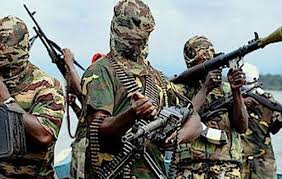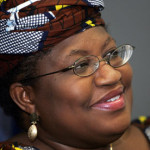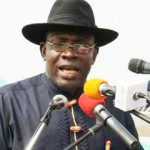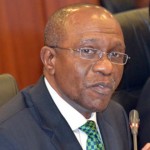Boko Haram: Why Traditional Rulers Should Do More
Articles/Opinion Thursday, March 6th, 2014
By Adewale Kupoluyi
The Boko Haram menace has certainly become a national calamity that deserves a more serious attention, not only from the security agencies but every Nigerian and more importantly the royal fathers, who are at a vantage position to nip the problem in the bud. This call became more imperative in view of what appears to be the failure of law enforcement agents and state apparatus to successfully tame this monster that is gradually turning the North-east states and perhaps, the nation into a death chamber. This wickedness has reduced the northern part of the country into a killing field and exposed the leadership ineptitude at the highest level. The latitude the terrorists now exude reiterates the sorry state of insecurity in the country, as there is hardly a day, without reports of citizens being maimed or killed!
Over the last couple of years, Boko Haram has been responsible for most of the violent death of Nigerians outside the civil war and perhaps, the worst threat to national security and unity. The Nigerian government may have allowed the menace to fester for too long now that the sect has graduated into a new daring stage that looks like a coordinated guerrilla warfare against the State. It would be recalled that when the Federal Government announced plans for a military offensive against the insurgents, the calculation then was that the Islamist fundamentalist group would be wiped-out and that peace would be restored to the troubled region. Regrettably, the increasing spate of destruction of lives and property in the region by the sect has clearly negated this position because there is virtually nothing our law enforcements have been able to eliminate this nagging problem. The military and police too, have been victims of this terror attacks in addition to the many children, school children, women and the aged that were eliminated. But one thing I am sure of is that there is the very likelihood that the nation may experience a remarkable improvement in this fight, if the traditional rulers could be more committed.
This is going to be possible by virtue of the fact that the royal fathers are very close to their subjects. Not only are they close – they are highly revered and accorded great respect – by virtue of African culture and tradition. The customary law, which governs the traditional institution sets out the procedures of ascension into a throne based on the principle of primogeniture – surviving first son succeeds his father on the throne, or it may be gerontocracy – where the oldest man in the kingdom occupies the throne, or a rotational system where the kingship rotates from one ruling house to another. In short, the beauty of this authority is that whoever emerges as the ruler should ordinarily enjoy the support of the people.
In the past, traditional leaders played the role of upholding the values and administering the affairs of their domain. They were saddled with the responsibilities of working with municipalities to identify the needs of their communities and getting involved in the shaping and participating in service delivery, even though some of these sacred attributes of our traditional leaders have been eroded over the years by the political class. By that, royal fathers understood the terrain, language, myths, respect and the psyche of their people without any difficulty. It was not so difficult to isolate any troublemaker or infiltrators into their territories, using local and native intelligence, vigilante and communal loyalty. In actual fact, these are just what we need, more than ever before, to put a check on the insurgents. Therefore, government should try something new and reach out to traditional institutions by soliciting their intervention in finding a lasting solution to this crisis.
For instance, the Northern traditional council and Islamic leaders – where the attacks are more severe – the Emirs could hold the keys to accessing these people, who may not be faceless as some critics would want us to believe. Afterall, they are human beings and not ghosts! To start with, these authorities and institutions have a sacred duty to broker peace by solemnly admitting that the continued killing by Boko Haram is no longer acceptable in their domains. They should come out to tell Nigerians that the Islam faith they practice is not the same as that, which the fundamental group is professing. Once this is done, the fight against terror attacks will significantly get the needed boost. At a recent joint meeting of the Northern Traditional Rulers Council and Northern Elders Forum, the Sultan of Sokoto, Alhaji Muhammad Sa’ad Abubakar III, had accused political leadership in the North of slowing down the peace process and development by failing to implement various recommendations by traditional rulers on the way forward for the region. According to the Sultan, the traditional institution had been in existence long before the amalgamation of Nigeria in 1914, noting that it has a strong leadership and vision to ensure that their communities lived in peace.
“I want to assure all and sundry that the northern traditional institutions do not have a political party but we are the administrators of our people. Not having a political party does not mean we will not tell our political leaders the truth when they go off the road. We will tell them where they are going wrong when we see it and tell them what to do to bring development to our people. When we give such advice, we will be very happy because we have done our responsibilities. If we give them the advice, it is left to them to either accept our advice or not. While we are giving advice, we can always contribute rightly to the development and peaceful coexistence of people in our various places. Our political party is the welfare of our people wherever they are and that is our concern and nothing more”, he added.
In the North, where religion and tradition are interwoven, traditional and spiritual leadership are not only a simpler form of government, but are more accessible in the sense that they are closer to their subjects than any other system of government in the sense that they live in the same village and naturally, with the easy access to such leaders, decision-making process becomes democratic and consensus-based, which invariably creates greater harmony and unity. This is what is completely absent from Nigeria as a nation-state. It is a truism that getting new results from the old ways of doing things is almost a mirage. Hence, more emphasis should be placed on a new approach through grassroots intelligence gathering and monitoring to make the tracking of the insurgents more tactical.
In view of the transnational dimension of the sect’s activities, alliances should also be formed with neighbouring countries, to ensure that their territories are no longer used as bases and battlefields to launch attacks on the country. That is why the cross-border interactions between the authorities of both Nigeria and Cameroon, through the Cameroon-Nigeria Mixed Commission (CNMC), is laudable. Finally, while I am not really canvassing for the granting of a constitutional role for traditional rulers, they should, however, be made to contribute largely to the maintenance of peace, order and security in their jurisdiction by making them accountable. By this, we should certainly be winning the war on terror.
Kupoluyi writes from the Federal University of Agriculture, Abeokuta, vide, adewalekupoluyi@yahoo.co.uk, Twitter, @AdewaleKupoluyi
Related Posts
Short URL: https://www.africanexaminer.com/?p=8900




















